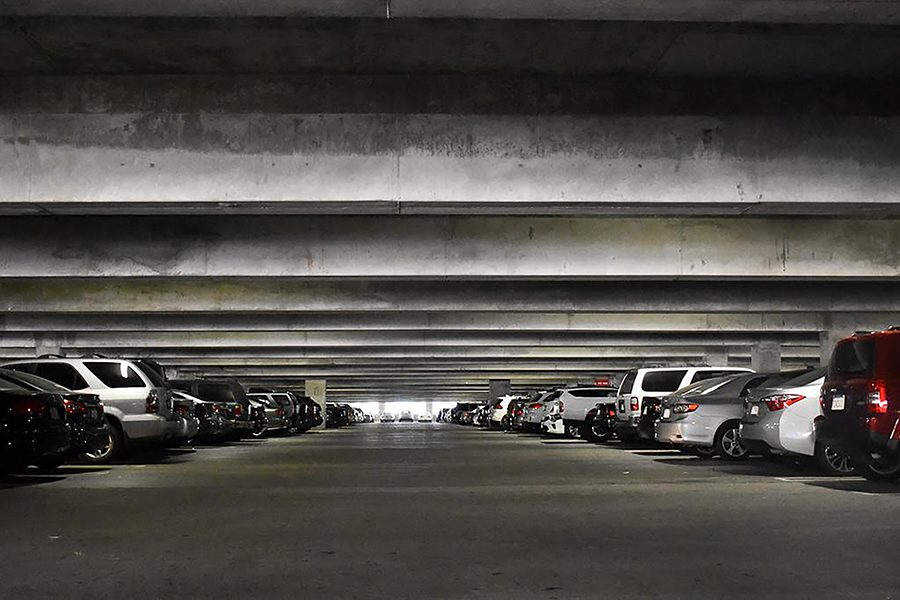In early August, San Diego State fully transitioned to a virtual parking permit system, eliminating the need for the sticker permits many students had become accustomed to using over the years.
The change was prompted by a desire to prioritize sustainability, improve the user’s experience and eliminate the administrative costs associated with obtaining and mailing the decals used in the past, SDSU Parking & Transportation Services Director Deborah Richeson said in an email.
But SDSU is not the first university to do this, and the removal of physical decals could be considered part of a larger trend.
The use of virtual parking permits is becoming the new normal across other California State University campuses, including CSU San Marcos, CSU Long Beach, Cal Poly San Luis Obispo and San Francisco State University — all of which currently use virtual parking passes or are in the process of switching to them.
However, the implementation of the new system at SDSU has raised concerns among students, faculty and staff, many of whom are still unaware how the parking rules will be enforced without physical permits.
“I feel like I’m forgetting something every time I park without the sticker on my windshield,” accounting junior Alexander Stanescu said. “I know I won’t get a citation because I have a permit, but it still feels weird.”
The new virtual permits will be enforced by parking officers driving two trucks equipped with license plate readers, according to Richeson. The trucks drive up and down the aisles of SDSU’s parking structures and lots, verifying each parked vehicle has a valid permit.
“Software will inform the parking officer if one of the vehicles just scanned does not have any permit associated to it,” Richeson said. “This works for permits purchased in the portal, the pay stations and PayByPhone.”
Each parking officer is also equipped with an “enforcement device,” with which they can manually enter a license plate number to verify the vehicle has a current permit.
However, not all permits use the new virtual system.
Many faculty and staff permits will continue to require a physical tag — due to ongoing union negotiations — while others will rely on the virtual system, Richeson said. This has been a cause for concern among faculty and staff that fear students, who don’t believe they will get caught, will park in non-student spots.
In addition, some campus departments still issue physical guest permits.
Nevertheless, the parking officer can verify the validity of both physical and virtual permits using their enforcement devices.
The transition to the virtual permit system is one of many changes Parking & Transportation Services has made over the past several months.
In April, the university announced a new policy barring freshmen from bringing cars to campus, and on Aug. 19 the university announced a sweeping ban on electric scooters, bikes and skateboards. Both announcements were met with criticism. However, the roll-out of the virtual permit system went smoothly, Richeson said.
“The roll-out of virtual in the parking portal delivered the results we anticipated and showed us all the nuances we need to fine-tune going forward,” Richeson said.









